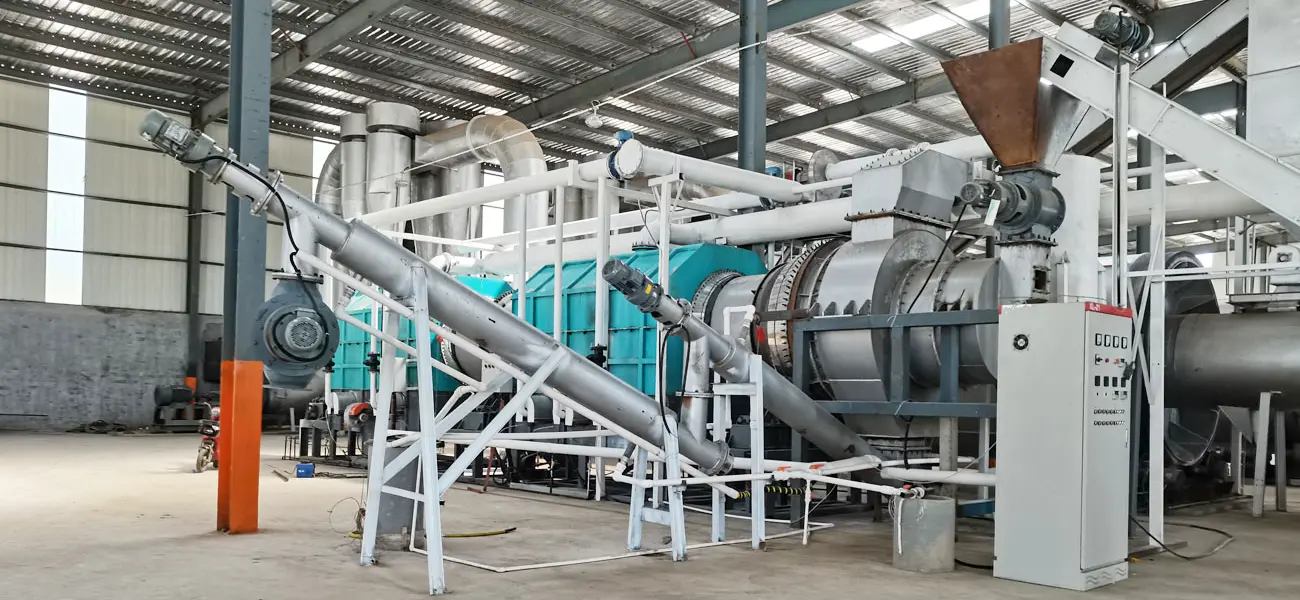Commercial demand for high-calorific, low-smoke grilling fuel has intensified as outdoor cooking, restaurant services, and recreational catering industries expand globally. The production of barbecue-grade charcoal has transitioned from traditional pit burning to controlled thermochemical processing using modern equipment. A BBQ charcoal machine enables manufacturers to convert biomass residues into uniform, high-density briquettes suitable for commercial distribution, ensuring consistent performance and environmental compliance.
Converting Biomass Into High-Quality Charcoal
A BBQ charcoal machine utilizes pyrolysis technology to carbonize agricultural residues such as sawdust, coconut shell, bamboo, rice husk, and wood chips. By operating in an oxygen-limited environment, the equipment thermally decomposes lignocellulosic matter into charcoal, syngas, and wood vinegar. The resulting charcoal contains high fixed carbon content, excellent combustion stability, and minimal volatile impurities. These qualities make it ideal for barbecue applications where steady heat, low smoke emission, and long burning duration are critical.
Enhancing Briquette Strength and Uniformity
Once carbonization is complete, the fine charcoal powder is mixed with a binding agent and undergoes compression in a molding press. This process shapes the charcoal into cylindrical, hexagonal, or pillow-shaped briquettes, depending on market preference. High-pressure molding ensures optimal density and uniformity, improving ignition properties and prolonging combustion. Precision control within the BBQ charcoal machine helps maintain consistent moisture content, particle size, and extrusion pressure, resulting in a superior briquette suitable for commercial packaging and large-scale export.
Promoting Energy Efficiency and Emission Reduction
Wood-based charcoal production traditionally releases large quantities of carbon monoxide, particulate matter, and tar into the atmosphere. With advanced pyrolysis and gas purification technology integrated into a BBQ charcoal machine, emissions are drastically reduced. Syngas generated during production is recycled to fuel the carbonization chamber, significantly lowering external energy usage. This closed-loop energy utilization improves operational efficiency while supporting environmental sustainability.
Meeting Market Requirements and Quality Standards
Commercial markets prioritize charcoal products that are clean-burning, odorless, and capable of reaching high temperatures rapidly. High-quality barbecue charcoal produced using modern equipment satisfies these criteria, exhibiting minimal ash content and steady heat output. The durability of briquettes ensures they retain structural integrity during transportation and handling. Packaging customization, such as moisture-resistant bags or branded cartons, further enhances marketability for wholesalers, retailers, and international distributors.
Supporting Profitability and Industrial Scalability
A BBQ charcoal machine offers scalable production capacity suited for small enterprises or large industrial processing lines. Automation reduces labor dependence, increases throughput, and improves production consistency. In regions where biomass waste is abundant, manufacturers benefit from cost-effective feedstock sourcing. This improves profit margins while promoting waste valorization and supporting renewable energy initiatives. Export opportunities are also expanding, particularly in regions with strong demand for high-grade grilling fuel, such as Europe, North America, and the Middle East.
Aligning With Eco-Friendly Business Practices
The shift toward sustainable outdoor cooking fuels has boosted the appeal of biomass-based charcoal. Unlike fossil-derived briquettes, charcoal produced from agricultural residues is considered renewable, biodegradable, and carbon-neutral. It contributes to reduced deforestation and supports environmental certification compliance. Businesses adopting a BBQ charcoal machine can strategically position themselves in the green fuel market, enhancing brand credibility and long-term commercial resilience.
Modern barbecue fuel production has evolved into a precise, energy-efficient manufacturing process. With advanced equipment, biomass waste transforms into valuable charcoal products that meet the demands of global commercial markets.




No comments:
Post a Comment